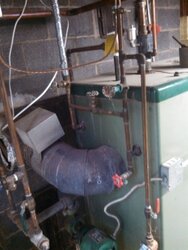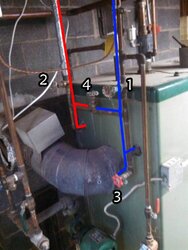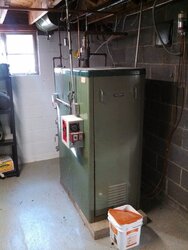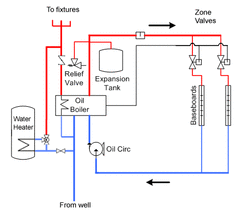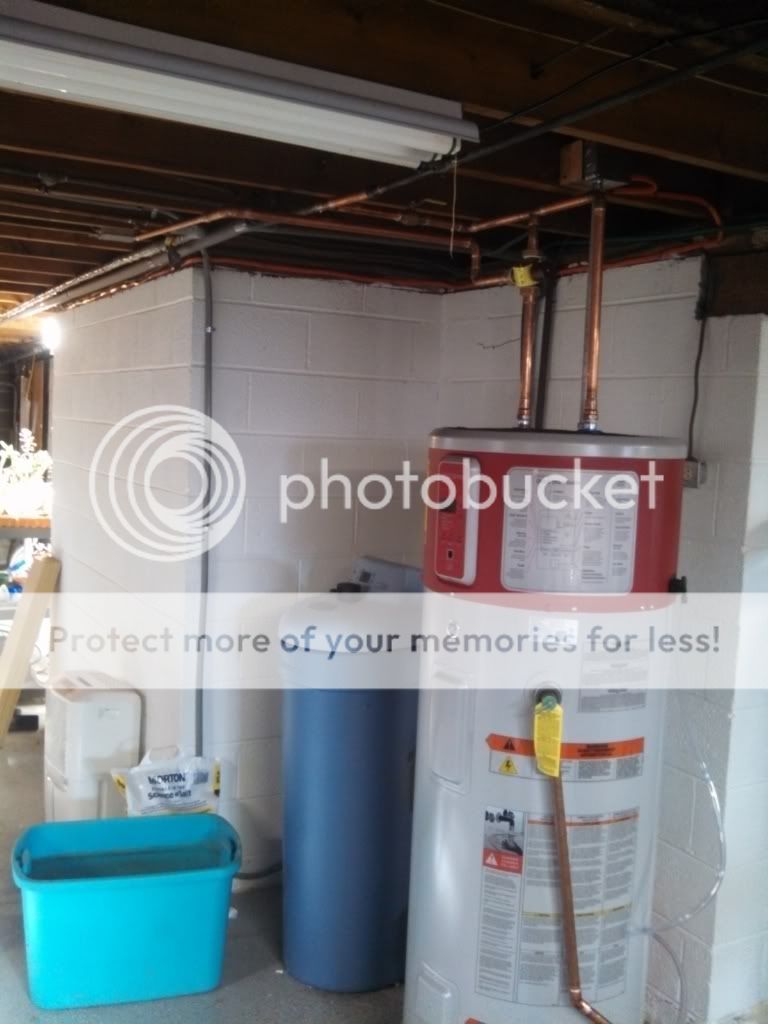I recently calculated just how much money I am wasting heating my DHW with a tankless coil in an old oil boiler, so I pulled the trigger on a GE Geospring heat pump/electric hot water heater.
I plan to install this in series with the oil boiler, which I will shut down and turn on only when I'm away from the house for long periods in the winter. Otherwise I'll use my wood stove to heat the house and the Geospring for DHW all year round. Eventually I plan to add on a gasifier w/storage, and either keep the existing oil boiler as a backup or replace it with a different backup option. The Geospring will stay on to provide DHW in the summer time when the basement is warm and damp and I don't feel like making fires inside.
For now, it sounds like my best bet is to add water heater in series with the boiler by T-ing off the DHW line coming out, as depicted below. I'll install ball valves between the Ts and before the HWH so I can bypass if needed. I will then shut down the boiler (and hope it doesn't weep) and the water will just flow through the cold boiler on its way to the HWH. If I go away for several days in the winter, I'll just need to restart the boiler.
Does this sound like a good plan? Anything I'm missing? This will be my first plumbing job... excited to get some experience so I can eventually tackle a gasifier setup
Current setup
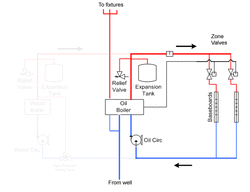
After HWH
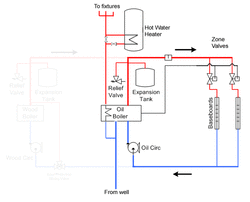
I plan to install this in series with the oil boiler, which I will shut down and turn on only when I'm away from the house for long periods in the winter. Otherwise I'll use my wood stove to heat the house and the Geospring for DHW all year round. Eventually I plan to add on a gasifier w/storage, and either keep the existing oil boiler as a backup or replace it with a different backup option. The Geospring will stay on to provide DHW in the summer time when the basement is warm and damp and I don't feel like making fires inside.
For now, it sounds like my best bet is to add water heater in series with the boiler by T-ing off the DHW line coming out, as depicted below. I'll install ball valves between the Ts and before the HWH so I can bypass if needed. I will then shut down the boiler (and hope it doesn't weep) and the water will just flow through the cold boiler on its way to the HWH. If I go away for several days in the winter, I'll just need to restart the boiler.
Does this sound like a good plan? Anything I'm missing? This will be my first plumbing job... excited to get some experience so I can eventually tackle a gasifier setup

Current setup

After HWH



